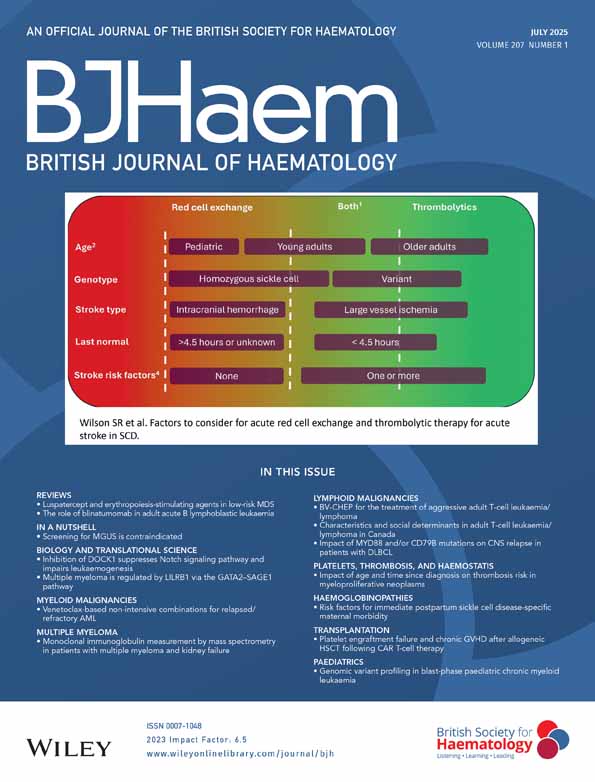Monocyte-derived dendritic cells do not proliferate and are not susceptible to retroviral transduction
Abstract
Dendritic cells may be generated ex vivo from CD34+ progenitor cells or peripheral blood mononuclear cells. Initial reports suggested that monocyte-derived dendritic cells (MoDCs) arise from a proliferating precursor and several groups subsequently reported successful retroviral transduction of these cells, again implying that cell division occurs. As this is of importance in the development of immunotherapy protocols, we investigated whether monocytes proliferate as they differentiate into MoDCs and also their susceptibility to retroviral transduction. During MoDC differentiation, there was a 51 ± 12% reduction in cell number, 98% of cells were in G0/G1, no DNA synthesis was detectable and the cell cycle regulatory proteins pRb and p130 were in the hypophosphorylated forms observed in non-cycling cells. As expected from these results, MoDCs were refractory to transduction with a GALV1 pseudotyped Moloney murine leukaemia virus (MoMLV)-based retroviral vector. In contrast, generation of DCs from purified CD34 progenitors was accompanied by rapid entry into the cell cycle and a 41.1-fold cell expansion at the end of 14 d culture.




